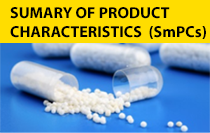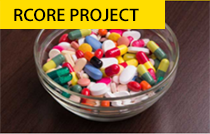
Report Adverse Reaction

Approved fees Schedules

Products Recall And Alert

For Stakeholders

Submit a Complaint

FAQs

Submit Advert Application

Submit Advert Application

Consumer Education
News & Events
Latest News
2024-04-17 00:00:00
Ghana's COVID-19 Safety Monitoring Effects Receive Global Acclaim2024-04-05 00:00:00
FDA AND AFROCET MONTGOMERY MEETS STAKEHOLDERS2024-03-13 00:00:00
NEW FDA FEES AND CHARGES EFFECTIVE MONDAY 18th MARCH 20242024-02-01 00:00:00
DRAFT GUIDELINE FOR PUBLIC CONSULTATION "FDA GUIDELINE ON IDENTIFICATION AND DATA CAPTURE FOR PHARMACEUTICAL TRACEABILITY"2023-11-17 00:00:00
JOHN OWUSU GYAPONG IS THE NEXT ARUA SECRETARY-GENERAL2023-11-17 00:00:00
FDA LAUNCHES THE NATIONAL TOBACCO CONTROL STRATEGYFDA ALLAYS CONCERNS OF ASTRAZENECA COVID-19 VACCINE SAFETY IN GHANA
ACCRA, 21ST MAY 2024 - In light of renewed concerns about the AstraZeneca COVID-19 vaccine, the Food and Drugs Authority (FDA) hereby updates the public on the vaccine's safety status in Ghana. The AstraZeneca vaccine, sold as Covishield and Vaxzevria, is one of six COVID-19 vaccines granted Emergency Use Authorization (EUA) by the FDA in February 2021. The EUA process allows for the availability of essential medical products during public health emergencies through a stringent, expedited process that ensures safety, quality, and efficacy.
During the rollout of COVID-19 vaccines, the FDA's Joint COVID-19 Vaccine Safety Review Committee (JCVSRC) received various reports of adverse events. These reports were anticipated and managed according to national procedures. The JCVSRC also monitored global reports of vaccine side effects, including thrombosis with Thrombocytopenia Syndrome (TTS).
TTS is a rare condition associated with adenoviral COVID-19 vaccines like AstraZeneca's Vaxzevria and the Johnson & Johnson/Janssen vaccine. Symptoms appear between 4 and 42 days after vaccination. The estimated risk of TTS after the first dose of the AstraZeneca vaccine is about 2 per 100,000 people vaccinated, with higher rates in individuals under 60. The risk decreases after the second dose.
As of the end of March 2024, 10,545,038 people in Ghana had received the AstraZeneca vaccine. The FDA investigated 4,149 reported adverse events following immunization (AEFIs), and thrombosis with TTS was not among them. In Ghana, the Emergency Use Authorization granted for the AstraZeneca vaccines expired in May 2023 in line with Section 4.4 of the FDA's guidelines on EUA when the COVID-19 pandemic was no longer listed as a global public health emergency of international concern.
Globally, the AstraZeneca vaccine's manufacturers have suspended its production due to the development of new vaccines for emerging COVID-19 strains. The vaccine will therefore no longer be available for use globally.
Despite this, the FDA remains vigilant in monitoring the safety of all vaccines used in Ghana, including COVID-19 vaccines, through its Safety Monitoring Department and its Technical Advisory Committee on Safety of Vaccines and Biological Products.
During the pandemic, the JCVSRC, established by the FDA, worked with the Ghana Health Service Expanded Programme on Immunization to oversee vaccine safety. The JCVSRC suspended its regular meetings in 2023 as the number of adverse event reports declined, corresponding with reduced vaccine uptake.
The FDA assures the public that it is dedicated to the continuous and proactive monitoring of all regulated products to ensure they remain safe, effective, and of high quality. Should any product present an unacceptable risk, the FDA will take swift regulatory action to safeguard public health.
For further information, please contact the FDA via the contacts below.
Issued by:
CEO
Dr. Delese Mimi Darko
delese.darko@fda.gov.gh
About FDA:
The FDA is the National Regulatory Body responsible for the regulation of food, drugs, food supplements, herbal and homeopathic medicines, veterinary medicines, cosmetics, medical devices, household chemical substances, tobacco and tobacco products, blood and blood products as well as the conduct of clinical trials. The Public Health Act, 2012 (Act 851) provides for the establishment of a Governing Board with the responsibility of ensuring the effective implementation of the functions of the Authority.
The FDA exist to ensure the Safety, Quality and Efficacy of human and veterinary drugs, food, biological products, cosmetics, medical devices, household chemical substances, the regulation of clinical trials, and the control of tobacco and tobacco products through the enforcement of relevant standards to protect public health.
Notes to Editors:
The FDA will post this media release on our social media handles and website. Should you wish to request an interview, please send your request to rhoda.appiah@fda.gov.gh
THE FDA MISSION
The FDA exist to ensure the safety, quality and efficacy of human and veterinary drugs, food, biological products, cosmetics, medical devices, household chemical substances and clinical trials, and the control of tobacco products through the enforcement of relevant standards to protect public health.

Subscription Management Centre












